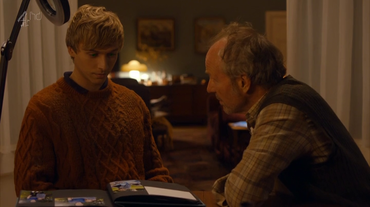The rights stuff
 It took a lake to show up the fatuousness of the idea of granting robots legal personality rights.
It took a lake to show up the fatuousness of the idea of granting robots legal personality rights.
The story, which the AI policy expert Joanna Bryson highlighted on Twitter, goes like this: in February 2019 a small group of people, frustrated by their inability to reduce local water pollution, successfully spearheaded a proposition in Toledo, Ohio that created the Lake Erie Bill of Rights. Its history since has been rocky. In February 2020, a farmer sued the city and a US district judge invalidated the bill. This week, three-judge panel from Ohio's Sixth District Court of Appeals ruled the February judge made a mistake. For now, the lake still has its rights. Just.
We will leave aside the question of whether giving lakes and the other ecosystems listed in the above-linked Vox article is an effective means of environmental protection. But given that the idea of giving robots rights keeps coming up - the EU is toying with the possibility - it seems worth teasing out the difference.
In response to Bryson, Nicholas Bohm noted the difference between legal standing and personality rights. The General Data Protection Regulation, for example, grants legal standing in two new ways: collective action and civil society representing individuals seeking redress. Conversely, even the most-empowered human often lacks legal standing; my outrage that a brick fell on your head from the top of a nearby building does not give me the right to sue the building's owner on your behalf.
Rights as a person, however, would allow the brick to sue on its own behalf for the damage done to it by landing on a misplaced human. We award that type of legal personhood to quite a few things that aren't people - corporations, most notoriously. In India, idols have such rights, and Bohm cites a case in which the trustee of a temple, because the idol they represented had these rights in India, was allowed to join a case claiming improper removal in England.
Or, as Bohm put it more succinctly, "Legal personality is about what you are; standing is about what it's your business to mind."
So if lakes, rivers, forests, and idols, why not robots? The answer lies in what these things represent. The lakes, rivers, and forests on whose behalf people seek protection were not human-made; they are parts of the larger ecosystem that supports us all, and most intimately the people who live on their banks and verges. The Toledoans who proposed granting legal rights to Lake Erie were looking for a way to force municipal action over the lake's pollution, which was harming them and all the rest of the ecosystem the lake feeds. At the bottom of the lake's rights, in other words, are humans in existential distress. Granting the lake rights is a way of empowering the humans who depend on it. In that sense, even though the Indian idols are, like robots, human-made, giving them personality rights enables action to be taken on behalf of the human community for whom they have significance. Granting the rights does not require either the lake or the idol to possess any form of consciousness.
In a paper to which Bryson linked, S.G. Solaiman argues that animals don't quality for rights, even though they have some consciousness, because a legal personality must be able to "enjoy rights and discharge duties". The Smithsonian National Zoo's giant panda, who has been diligently caring for her new cub for the last two months, is not doing so out of legal obligation.
Nothing like any of this can be said of rights for robots, certainly not now and most likely not for a long time into the future, if ever. Discussions such as David Gunkel's How to Survive a Robot Invasion, which compactly summarizes the pros and cons, generally assume that robots will only qualify for rights after a certain threshold of intelligent consciousness has been met. Giving robots rights in order to enable suffering humans to seek redress does not come up at all, even when the robots' owners hold funerals because the manufacturer has discontinued the product. Those discussions rightly focus on manufacturer liability.
In the 2015 British TV series Humans (a remake of the 2012 Swedish series Äkta människor), an elderly Alzheimer's patient (William Hurt) is enormously distressed when his old-model carer robot is removed, taking with it the only repository of his personal memories, which he can no longer recall unaided. It is not necessary to give the robot the right to sue to protect the human it serves, since family or health workers could act on his behalf. The problem in this case is an uncaring state.
The broader point, as Bryson wrote on Twitter, is that while lakes are unique and can be irreparably damaged, digital technology - including robots - "is typically built to be fungible and upgradeable". Right: a compassionate state merely needs to transfer George's memories into a new model. In a 2016 blog posting, Bryson also argues against another commonly raised point, which is whether the *robots* suffer: if designers can install suffering as a feature, they can take it out again.
So, the tl;dr: sorry, robots.
Illustrations: George (William Hurt) and his carer "synth", in Humans.
Wendy M. Grossman is the 2013 winner of the Enigma Award. Her Web site has an extensive archive of her books, articles, and music, and an archive of earlier columns in this series. Stories about the border wars between cyberspace and real life are posted occasionally during the week at the net.wars Pinboard - or follow on Twitter.